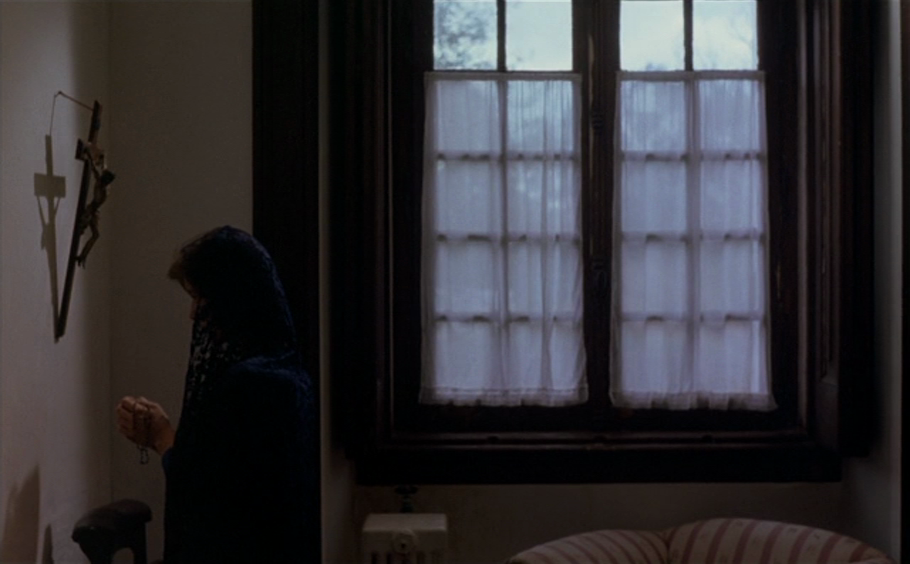|
Plucky and playful, Manoel de Olivera's The Divine Comedy manages to never divulge into pretension, despite its lofty philosophical aims. The madness of faith is certainly a central dialect of Oliveira's dense and pedantic philosophical romp and yet the film subverts this assertion in order to dig deeper, exhibiting an outright rejection of the so-called binary which modernity places between religion and science, offering instead a deconstruction in which both objects are in fact analogous when viewed through the lens of authority and by proxy power. The Divine Comedy sheds insight on the tyranny of mankind's penchant for objectivity, this orthodox-like requirement rooted in existentialism provides a breeding ground for the omnipresence of authority and power, forces which intrinsically restrict and reject the autonomy of the living. Authority and thus Power, whether decreed via science, politics, theology is exhibited as somewhat irrelevant throughout this playful intellectual piece, astutely revealing how all such forces can reject a general sense of free association and pluralism, despite their surface-level potential or promise for human progress. The irrationality of man, caught between powerful forces of mind and body, emotion and intellect, is displayed throughout The Divine Comedy's duration, as the freedom vs. security paradigm of human existence and the faux projection which authority exhibits whether through politics, theology, or scientific doctrine is lambasted in this gleefully pedantic romp.
0 Comments
Leave a Reply. |
AuthorLove of all things cinema brought me here. Archives
June 2023
|

 RSS Feed
RSS Feed
